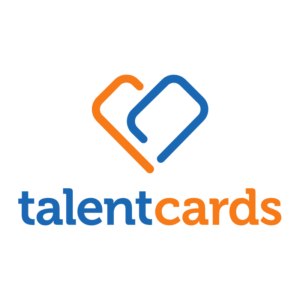Microlearning: Small Steps, Strong Minds
In the fast-paced work environment of today, employees navigate more than just deadlines. They juggle stressors such as emotional fatigue and increasing mental health concerns.
As burnout rates soar and attention spans dwindle, conventional learning approaches fall short of meeting these challenges. But what if the structure of learning itself could be a part of the remedy?
Enter microlearning: succinct, targeted lessons that are easy to grasp and implement. Microlearning has already demonstrated its effectiveness in enhancing knowledge retention and engagement. Now, it’s emerging as a viable strategy to bolster mental health, providing a straightforward and scalable method to foster emotional resilience at work.
Why Microlearning is Essential for Your Learning & Development Strategy
Mental health is no longer an optional enhancement for many organizations; it is a critical component of employee success. Employees demand more than just an annual wellness initiative; they seek consistent support and mental health resources woven into their daily routines.
This is where microlearning proves invaluable. These brief, focused lessons promote clarity, independence, and simplicity—essential elements for nurturing mental well-being. By offering targeted mini-lessons, employees can learn at their own pace and revisit topics as needed, gaining a sense of control over their development and health.
Think of these microlearning modules as a proactive approach to employee well-being, ensuring they feel valued and acknowledged. For instance, introducing a brief training for managers on preventing team burnout could significantly mitigate the mental health toll on employees. Every organization can gain from incorporating such thoughtful initiatives into its L&D framework.
How Microlearning Promotes Everyday Mental Wellness
Imagine a five-minute lesson on how to recover after a challenging meeting, a quick video on identifying early signs of burnout, or a daily reflective prompt to boost self-awareness.
Believe it or not, these scenarios are not merely hypothetical; they represent real microlearning modules that positively impact mental health.
In an ever-evolving workplace, here’s how microlearning can play a crucial role in enhancing employee wellness.
Normalization of Mental Health Conversations
Short-format content offers a low-pressure way to address sensitive issues. Microlearning creates a safe environment for employees to engage with topics like anxiety, stress, and emotional fatigue, fostering a culture that normalizes discussions about mental well-being.
Facilitation of Coping Strategies
While techniques such as mindful breathing are beneficial, they are most effective when practiced routinely. Microlearning makes it easy for employees to revisit these strategies regularly, which is crucial for establishing dependable coping mechanisms.
Accessibility of Support
Instead of solely relying on sporadic wellness workshops, employees benefit more from bite-sized learning available whenever they need it. This method offers continuous, on-demand support rather than one-off events. By integrating mental health microlearning into their daily routines, employees can proactively manage their well-being and build resilience over time.
The Science Behind Microlearning for Mental Wellness
Microlearning’s greatest strength lies in its format. In a world where cognitive overload hampers information retention, delivering material in small, spaced intervals significantly enhances recall.
By combining repetition with personalization and emotional safety, microlearning bridges gaps in a learner’s day without becoming a burden. It aligns perfectly with our collective shift towards mobile-first content consumption. Employees are already engaging with short-form content for leisure (think TikTok). Why not channel that behavior into purposeful learning that fosters resilience?
Real-Life Applications of Mental Health Microlearning
Curious how this plays out in real-world scenarios? Here’s how your organization can utilize microlearning for mental health support:
- Onboarding New Managers
Develop a series of concise lessons that cover essential topics such as spotting signs of employee burnout, leading with empathy, and creating a psychologically safe environment for your teams. These insights can be particularly beneficial for those stepping into managerial roles for the first time.
Incorporating scenario-based exercises can better prepare employees to handle workplace conflicts. Since conflict often adds stress, equipping them with the skills to manage these situations can positively impact their mental health.
By embedding wellness into daily learning experiences, organizations communicate that prioritizing mental health is integral to the role, not merely an additional task.
Creating Lasting Mental Health Microlearning
Ready to introduce microlearning focused on mental health and wellness? Consider these tips:
- Personalize Content. Use relatable scenarios that resonate with your audience, emphasizing practical examples over clinical jargon.
- Adopt an Empathetic Tone. Eschew corporate speak in favor of conversational language infused with warmth. Acknowledge real-life challenges your employees may face.
- Link to Additional Resources. Include relevant wellness resources alongside microlearning courses to enhance understanding and support.
Scaling Microlearning for Mental Wellness
The beauty of microlearning is its adaptability; it doesn’t need to form the entirety of your L&D strategy. When it comes to wellness, integrating short microlearning modules can be a small yet impactful addition to employees’ daily routines. This could involve:
- Creating brief wellness courses tailored to various roles.
- Assigning bite-sized learning directly to employees.
- Monitoring the effectiveness of content in improving learners’ mental health.
- Updating materials based on the evolving wellness needs of your team.
Wellness should be readily accessible in the workplace, evolving beyond a once-a-year checkbox. When it becomes a natural part of the work culture, it truly enhances the employee experience.
A Trust-Building Approach
Incorporating microlearning into your L&D strategy sends a clear message: “Your mental health matters to us.” This shows that wellness is not an afterthought, but an integral part of your organization’s framework for communication, education, and operations.
Don’t view microlearning as a quick fix for wellness issues. It’s not a solution to lifelong burnout. Instead, think of it as an essential tool that normalizes mental health discussions, assists in cultivating daily healthy habits, and provides accessible resources to employees. Embrace microlearning as a vital component in an ever-changing workplace that values and cares for its workforce.
In an era where emotional fatigue, quiet quitting, and disengagement signal deeper challenges, every small step counts.

TalentCards
Connect workers globally, transfer knowledge, and impact performance. Meet TalentCards: the mobile microlearning tool designed for your deskless workforce.



